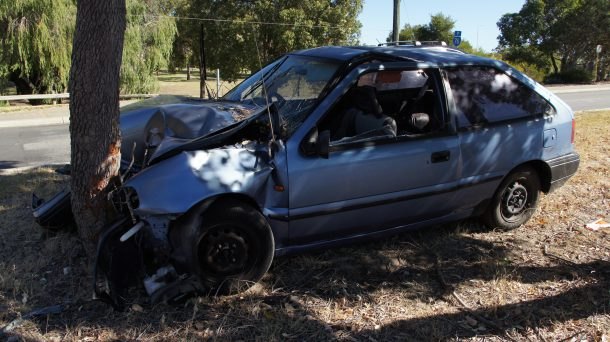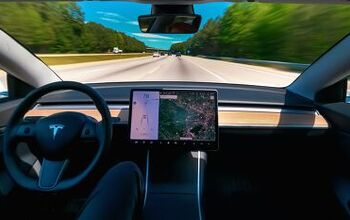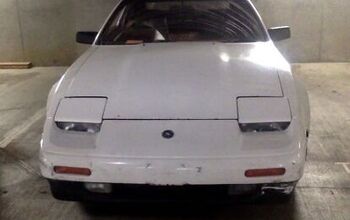Hat Trick: Automotive Recalls Reach Record High for Third Year in a Row

Automobile manufacturers recalled an all-time high of 53.2 million vehicles in the United States last year. The record-breaking number would not have been possible without the continued expansion of the recall of extremely dangerous Takata airbag inflators, according to the U.S. Transportation Department. Of course, it’s not just Takata Corp. that helped make 2016 the worst year on record, so be sure to save your applause.
Encouraged by the Obama administration, the Department of Transportation enacted a whopping 927 recall campaigns last year. That’s 7 percent above the previous high set in 2015. Fatal accidents jumped up 10.5 percent that year, followed by another 8 percent in 2016.
That makes 2016 the third consecutive year that American automotive recalls have set a record. In the previous two decades, annual U.S. recalls only averaged between 10.2 million and 30.8 million. Meanwhile, automobile-related deaths from last year were the highest since 2007, which isn’t bad considering there are more people covering greater combined distances than ever before. Still, it’s a higher per-person incident rate than the record low set in 2014 — and it has creeped back up ever since.
Deborah Hersman, president and CEO of the National Safety Council, said that the gradual increase “cannot be our new normal. If a Titanic-sized ship sank every day for 11 days, we would overhaul maritime safety. Where is our outrage over losing 100 people every day on our roadways? We know what to do but we just are not doing it.”
Still, the DOT seems to be doing everything it can to ensure consumer safety by issuing recalls, while automakers continue to implement new safety systems into vehicles — something Hersman says she strongly advocates. In October, the National Safety Council, National Highway Traffic Safety Administration and two other agencies announced the “Road to Zero Initiative,” which sets an impractical goal of zero traffic deaths by the year 2046.
[Source: Automotive News] [Image: perthhdproductions/ Flickr ( CC BY 2.0)]

A staunch consumer advocate tracking industry trends and regulation. Before joining TTAC, Matt spent a decade working for marketing and research firms based in NYC. Clients included several of the world’s largest automakers, global tire brands, and aftermarket part suppliers. Dissatisfied with the corporate world and resentful of having to wear suits everyday, he pivoted to writing about cars. Since then, that man has become an ardent supporter of the right-to-repair movement, been interviewed on the auto industry by national radio broadcasts, driven more rental cars than anyone ever should, participated in amateur rallying events, and received the requisite minimum training as sanctioned by the SCCA. Handy with a wrench, Matt grew up surrounded by Detroit auto workers and managed to get a pizza delivery job before he was legally eligible. He later found himself driving box trucks through Manhattan, guaranteeing future sympathy for actual truckers. He continues to conduct research pertaining to the automotive sector as an independent contractor and has since moved back to his native Michigan, closer to where the cars are born. A contrarian, Matt claims to prefer understeer — stating that front and all-wheel drive vehicles cater best to his driving style.
More by Matt Posky
Latest Car Reviews
Read moreLatest Product Reviews
Read moreRecent Comments
- Dave M. My sweet spot is $40k (loaded) with 450 mile range.
- Master Baiter Mass adoption of EVs will require:[list=1][*]400 miles of legitimate range at 80 MPH at 100°F with the AC on, or at -10°F with the cabin heated to 72°F. [/*][*]Wide availability of 500+ kW fast chargers that are working and available even on busy holidays, along interstates where people drive on road trips. [/*][*]Wide availability of level 2 chargers at apartments and on-street in urban settings where people park on the street. [/*][*]Comparable purchase price to ICE vehicle. [/*][/list=1]
- Master Baiter Another bro-dozer soon to be terrorizing suburban streets near you...
- Wolfwagen NO. Im not looking to own an EV until:1. Charge times from 25% - 100% are equal to what it takes to fill up an ICE vehicle and 2. until the USA proves we have enough power supply so as not to risk the entire grid going down when millions of people come home from work and plug their vehicles in the middle of a heat wave with feel-like temps over 100.
- Kwik_Shift_Pro4X Where's the mpg?


































Comments
Join the conversation
Hey its the USA. Guns don't kill cars do.
I don't really have a problem with the recalls, but what intrigues me is the top photo and so many others like it. What's with the car into a tree? Do some trees have bullseyes painted on them so knuckleheads deliberately aim for them? That picture of the collision couldn't be more dead-on! I'd like to know. I certainly make sure I steer clear of a tree when I see them, and I've never seen one move towards me when I drive! As for the tree, I hope it survived. The driver? I don't care... unless it was a real medical emergency, not due to drunkenness or illegal substances or plain stupidity.